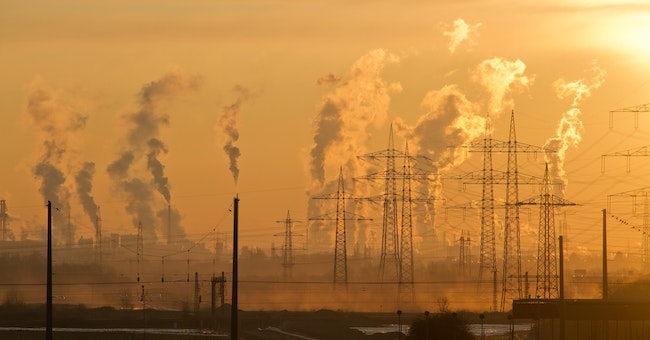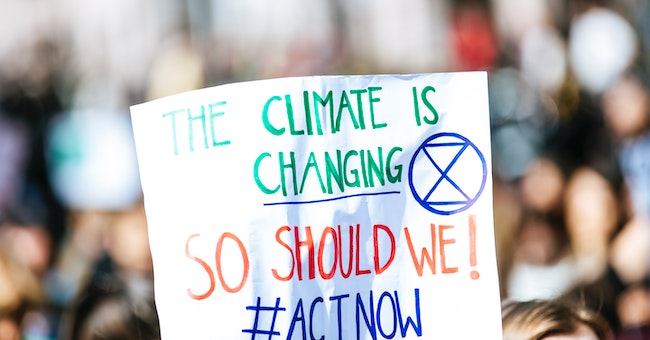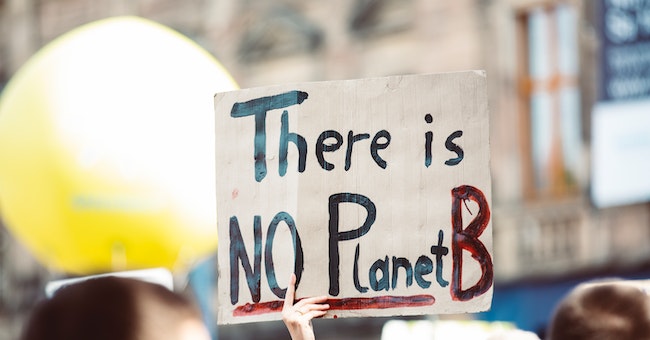Crash Course on Climate Change

Introduction
Understanding climate change is of paramount importance due to its far-reaching implications for the planet and humanity. Climate change, as its name implies, refers to holistic change in the environment of our planet, which includes long-term shifts in temperature, precipitation patterns, and other aspects of the climate system, primarily caused by human activities such as burning fossil fuels, deforestation, and industrial processes. The consequences of climate change are already being felt worldwide, with rising global temperatures leading to numerous challenges.
By comprehending climate change, individuals, communities, policymakers, and businesses can make informed decisions to mitigate its impacts and adapt to the changing conditions. Furthermore, understanding the scientific principles behind climate change empowers individuals to recognize the urgency of the issue and take meaningful action to reduce greenhouse gas emissions, protect ecosystems, and build resilience against climate-related risks. In this article, we will delve deeper into the subject of climate change and its significance. One of our focus will be on the importance of understanding climate change and how it affects our planet and future generations. Besides, we will address the pressing need for a crash course on climate change and make a proper introduction in this regard, along with reference of online courses and practical tips to optimize knowledge assimilation.
The Need for a Crash Course on Climate Change
In recent years, the concerns surrounding climate change have reached unprecedented levels. The scientific community has provided overwhelming evidence of the detrimental effects of human activities on the environment. From rising temperatures and extreme weather events to melting ice caps and sea-level rise, the consequences of climate change are far-reaching and affect every corner of the globe. Therefore, it is crucial for individuals to grasp the magnitude of these challenges and understand the urgent need for action.
A crash course on climate change offers numerous benefits for scholars and learners of all backgrounds. Firstly, it provides a condensed and comprehensive overview of the subject, allowing learners to gain a solid foundation in a relatively short span of time. The focused nature of a crash course ensures that essential concepts, scientific principles, and key issues related to climate change are covered extensively.
Furthermore, a crash course brings together diverse perspectives and expertise from renowned experts in the field. Learners have the opportunity to access valuable insights, cutting-edge research, and case studies that enhance their understanding of climate change. This exposure to a wide range of perspectives fosters critical thinking and encourages learners to explore potential solutions and contribute to ongoing discussions on climate change.
Additionally, a crash course equips scholars with the necessary knowledge and tools to make informed decisions and take action. By understanding the complexities of climate change, scholars can become advocates for sustainable practices and champions of environmental stewardship. The interdisciplinary nature of climate change education empowers learners to apply their newfound knowledge across various disciplines, making them valuable assets in tackling climate-related challenges.
Exploring Climate Change Classes
Overview of Climate Change Classes
Climate change classes offer individuals the opportunity to delve deeper into the complexities of climate change and gain a comprehensive understanding of its causes, impacts, and potential solutions. These classes provide a structured learning environment where learners can explore various aspects of climate change and develop the necessary knowledge and skills to address this global challenge effectively.
In an overview of climate change classes, learners are introduced to the fundamental concepts and scientific principles underlying climate change. They learn about the greenhouse effect, the role of greenhouse gases, and the mechanisms through which human activities contribute to global warming. Additionally, these classes shed light on the different factors that influence climate patterns, such as solar radiation, ocean currents, and atmospheric circulation.
Furthermore, climate change classes delve into the environmental and societal impacts of climate change. Learners gain insights into the consequences of rising temperatures, sea-level rise, extreme weather events, and shifts in ecosystems and biodiversity. They explore the ways in which climate change affects human health, agriculture, water resources, and vulnerable communities worldwide.
Different Formats and Platforms Available
Climate change classes are available in various formats and platforms to cater to different learning preferences and accessibility needs. Traditional classroom-based courses are offered by educational institutions, including universities, colleges, and research institutes. These courses provide face-to-face interactions with instructors and opportunities for group discussions and hands-on activities.
In recent years, online platforms and e-learning websites have emerged as popular options for accessing climate change classes. These platforms offer a wide range of courses that can be taken remotely, providing flexibility and convenience for learners. Online classes often include video lectures, interactive modules, discussion forums, and assignments, allowing learners to engage with the material and collaborate with peers from around the world.
Additionally, there are specialized climate change programs and workshops organized by non-profit organizations, environmental agencies, and research centers. These programs often combine classroom sessions with field visits, case studies, and practical exercises to provide a holistic learning experience.
Benefits of Taking a Structured Course
Taking a structured course on climate change brings several benefits for learners. Firstly, structured courses provide a systematic and organized approach to learning, ensuring that learners cover the essential topics and build a strong foundational knowledge base. The curriculum is carefully designed to cover the key aspects of climate change, enabling learners to develop a comprehensive understanding of the subject.
Structured courses also offer guidance and support from experienced instructors and facilitators who are experts in the field of climate change. Learners have the opportunity to interact with these instructors, ask questions, and receive personalized feedback, enhancing their learning experience.
Moreover, structured courses often include assignments, quizzes, and assessments to gauge the understanding and progress of learners. These assessments help learners identify their strengths and areas for improvement, allowing them to track their learning journey and make necessary adjustments.
Last but not least, structured courses serves as the opportunity for collaboration and networking with fellow learners. Group discussions, teamwork, and peer-to-peer interactions foster a sense of community and create a platform for exchanging ideas and perspectives. Learners can benefit from the diverse backgrounds and experiences of their peers, gaining new insights and broadening their understanding of climate change.
Selecting the Right Climate Change Class
When selecting a climate change class, it is important to consider several factors to ensure that the course aligns with your learning objectives and preferences. Here are some key considerations:
Course content: Evaluate the course syllabus and descriptions to understand the topics covered in the class. Determine whether the course focuses on the aspects of climate change that interest you the most, such as climate science, policy, or sustainable development.
Instructor expertise: Research the credentials and expertise of the instructors or facilitators leading the course. Look for individuals with a strong background in climate change research, policy, or activism, as their knowledge and experience will greatly contribute to the quality of the course.
Learning format: Consider the format of the class, whether it is a traditional classroom-based course, an online program, or a combination of both. Assess your preferences and availability to determine which format suits you best.
Course duration and schedule: Take into account the duration of the course and its scheduling. Ensure that the course duration fits within your timeframe and that the schedule allows for your participation without conflicting with other commitments.
Reviews and recommendations: Read reviews and seek recommendations from past learners or professionals in the field. Their feedback can provide valuable insights into the course's effectiveness, instructor quality, and overall learning experience.
By carefully considering these factors, you can select a climate change class that meets your learning needs and maximizes your educational experience in understanding and addressing the challenges of climate change.
Free Online Climate Change Courses
Importance of Accessibility in Climate Education
In the pursuit of combating climate change, it is crucial to ensure that climate education is accessible to a wide range of individuals across the globe. Accessible education plays a pivotal role in empowering people with the knowledge and understanding needed to make informed decisions and take meaningful action in addressing climate change.
Online climate change courses have emerged as a valuable resource for promoting accessibility in climate education. These courses break down barriers associated with traditional classroom-based learning, such as geographical limitations, financial constraints, and scheduling conflicts. By offering free online climate change courses, educational platforms and organizations open doors for those who may otherwise not have access to formal education on this critical subject.
The importance of accessibility in climate education lies in its ability to reach a diverse audience. Climate change affects people from all walks of life, and it is essential to ensure that educational opportunities are inclusive and accessible to everyone, regardless of their background, location, or financial means. Free online courses create a level playing field, allowing individuals from different socio-economic backgrounds, countries, and educational levels to access valuable climate change knowledge.
Moreover, accessibility in climate education promotes lifelong learning. It encourages individuals to continuously update their understanding of climate change and stay informed about the latest scientific advancements, policy developments, and sustainable practices. By making climate change courses freely accessible, people can engage in self-paced learning, explore new areas of interest, and contribute to ongoing efforts in addressing climate change.
Recommended Online Courses
Exploring related courses can greatly enhance your confidence and expand your understanding in the rapidly growing field of environmental sustainability. Furfunately, at AZClass, there are numerous resources available to help you acquire comprehensive knowledge in this area. In the Climate Change Online Courses Catalog, we have curated valuable courses for you. Specifically, we have selected a few courses that stand out:
Disasters and Ecosystems: Resilience in a Changing Climate
The course "Disasters and Ecosystems: Resilience in a Changing Climate" is a comprehensive online course offered by iversity. It aims to provide learners with the knowledge and skills to address complex issues such as resilience and transformation, sustainable development, ecosystem management, disaster risk reduction, and climate change adaptation. Participants will learn from international experts, engage in problem-solving exercises, and even design their own ecosystem-based project.
Pros of the course:
Comprehensive Overview
Practical Learning
Expert Instruction
Relevance to Various Professionals
Climate Change Science and Negotiations
Humanity is facing an urgent need to address climate change and its devastating impacts on both natural ecosystems and daily human life. This course, "Climate Change Science and Negotiations," offered by SDGAcademyX through edX, aims to equip learners with the knowledge and skills required to tackle climate change effectively. The course emphasizes the importance of deep decarbonization of global energy systems and aims to put the world on a pathway to limit the temperature increase to 2 degrees Celsius.
Pros of the course:
Comprehensive Learning
Understanding Global Negotiations
Expert Instructors
Flexibility and Self-Paced Learning
Free Access
The Climate Case Studies course offered by Kadenze provides participants with a comprehensive overview of four international teaching artist projects that respond to the climate emergency. The course explores how teaching artistry can effectively address social issues and create a positive impact within a community and beyond. It focuses on the work of teaching artists located in Australia, Brazil, the Philippines, and Serbia, showcasing projects such as the Chill the Heat Festival in Sydney, Australia, the School of the (Im)Possible in Florianopolis, Brazil, Dancing Trees in Belgrade, Serbia, and Unmasking Climate Injustices in Iloilo Province, Philippines. The course also delves into the role of the International Teaching Artist Collaborative (ITAC) in commissioning these projects and the support provided by climate expert Diana Liverman.
Pros of the course:
Comprehensive Overview
Interdisciplinary Approach
Insightful Content
Climate Expert Input
Climate change: transitions to sustainability
The course "Climate Change: Transitions to Sustainability" offered by The Open University explores the urgent need for human societies to shift away from fossil fuel dependence and adopt environmentally adaptable and sustainable practices. The course aims to provide insights into various approaches and strategies that can facilitate the transition towards sustainability in the face of climate change.
Pros of this course:
Comprehensive Understanding
Practical Application
Highly Rated
Statement of Participation
The Health Effects of Climate Change
The course aims to provide a comprehensive understanding of the health effects of climate change and how they directly impact individuals' lives. It explores various aspects, including air quality, nutrition, infectious diseases, and human migration, and presents expert recommendations for addressing these challenges. Students will learn about research methods used to measure the health effects of climate change and gain insights into its global impact. By enrolling in this course, you can discover ways to reduce the harm caused by global warming.
Pros of the course:
Comprehensive Coverage
Expert Guidance
Practical Applications
Certification Opportunity
Tips for Making the Most of a Crash Course
When enrolling in a crash course on climate change, it's essential to employ effective strategies that will enable you to absorb the most knowledge and make the most significant impact. Here are some valuable tips to help you make the most of your climate change crash course:
Define Your Learning Objectives: Before diving into the course, take a moment to identify your specific learning goals. Determine which aspects of climate change you want to gain a deeper understanding of or which skills you aim to develop. Setting clear objectives will guide your focus and allow you to tailor your learning experience accordingly.
Manage Your Time Wisely: Crash courses are designed to provide a wealth of information in a short timeframe. To optimize your learning, create a schedule that allocates dedicated time for studying each module or topic. Break down the course into manageable sections, set achievable deadlines, and stick to them. Effective time management will ensure you cover all the necessary material.
Actively Engage with the Content: Actively engaging with the course material will enhance your comprehension and retention. Take detailed notes, highlight key concepts, and annotate important sections. Summarize each module or lecture in your own words to reinforce your understanding. Participate in discussion forums or study groups to exchange ideas and perspectives with fellow learners.
Supplement Your Learning: While crash courses provide a comprehensive overview, it's beneficial to supplement your knowledge with external resources. Explore additional readings, research papers, documentaries, or podcasts related to climate change. These resources can offer different perspectives, provide in-depth analysis, and expand your understanding of the subject matter.
Foster Critical Thinking: Develop your critical thinking skills by critically analyzing the information presented in the course. Question assumptions, evaluate evidence, and challenge ideas. Engage in critical discussions and debates to refine your understanding and develop a well-rounded perspective on climate change. Embrace a curious and questioning mindset throughout your learning journey.
Apply Knowledge to Real-World Contexts: Look for opportunities to apply your newfound knowledge to real-world scenarios. Seek out practical applications of climate change concepts in your local community or participate in sustainability initiatives. By applying what you've learned, you can deepen your understanding and make a tangible difference in addressing climate change challenges.
By implementing these tips, you can maximize your learning experience during a crash course on climate change. Stay motivated, remain curious, and actively engage with the content to gain a comprehensive understanding of the challenges and solutions related to climate change.
Conclusion
Understanding climate change and its far-reaching implications is of paramount importance in today's world. As we navigate the challenges posed by climate change, equipping ourselves with knowledge and expertise becomes crucial.
Throughout this article, we have explored the significance of understanding climate change and the benefits of undertaking a crash course. We have delved into the various aspects of climate change classes, including an overview of the available courses, different formats and platforms, the benefits of structured learning, and how to select the right class that aligns with your interests and goals.
Additionally, we have shared tips to help you make the most of the crash course experience. By defining learning objectives, managing time effectively, actively engaging with the content, and supplementing learning with external resources, you can maximize your knowledge acquisition and critical thinking skills.
In a nutshell, a crash course on climate change equips learners with the necessary knowledge, skills, and awareness to actively participate in combating climate change. By fostering a deep understanding of climate change and its impact, we can collectively work towards sustainable solutions and a more resilient future.





